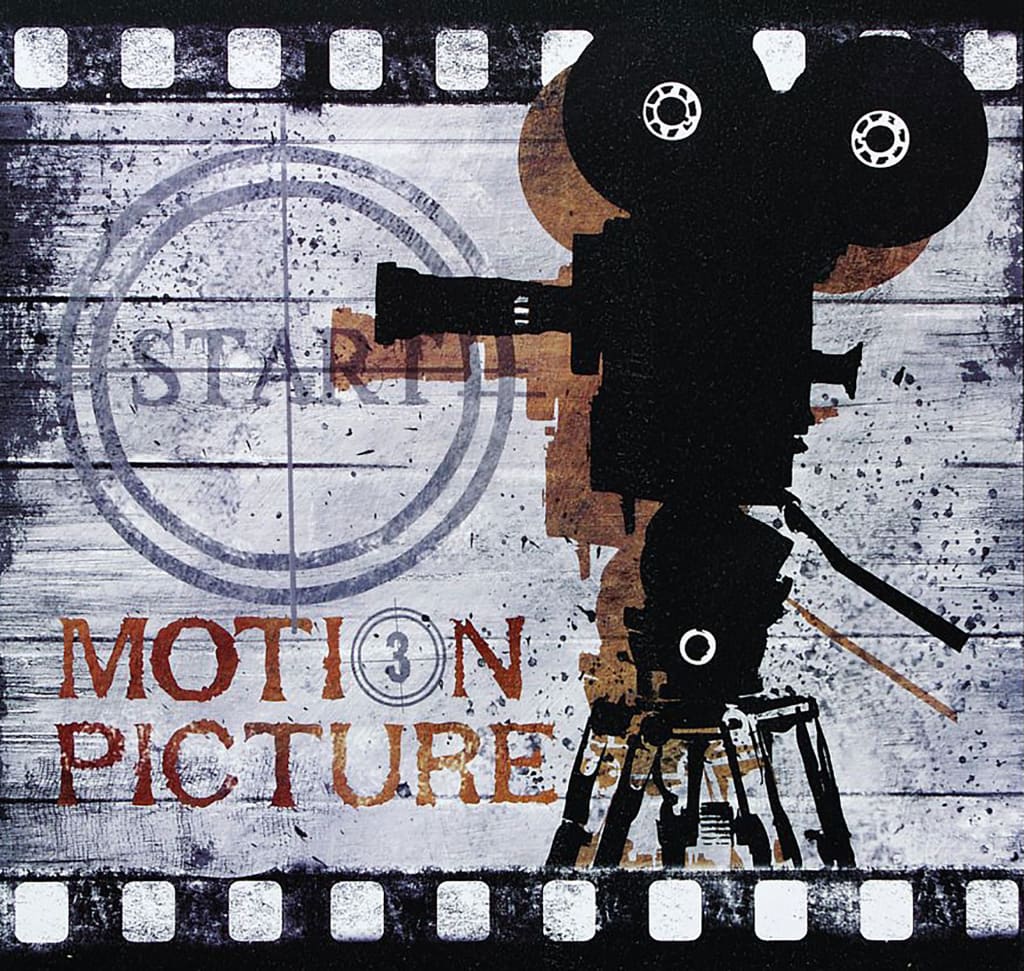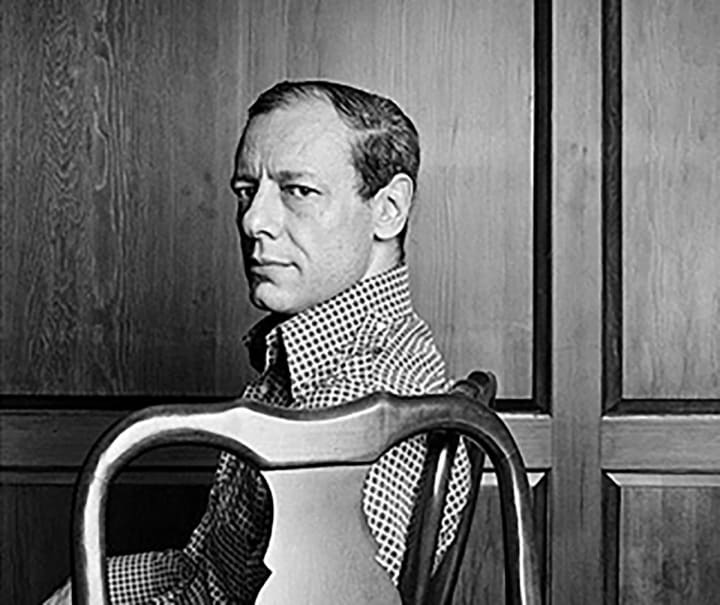History of Movie Reviews Was Written in the Stars
In the late 20th century, the writings of Rex Reed, Pauline Kael and John Simon positively reeked with rejection. That made all the difference.

Many years ago, movie reviewing was a shadowy journalistic sidelight, but it has now taken center stage in the digital ethos of America. Thousands of young people now yearn, and even study, to become film critics. There are film critic stars on every medium from You Tube to Facebook. Thousands of others publish reviews online. From Rotten Tomatoes to Metacritic the notion of a professional movie critic has all too often been diluted down to a commodity. Courses are given in universities and online. We have all become pseudo film critics.
What interests me more is the cultural climate that has enabled us all to flourish, and yet tends to keep us at each other's throats. When analyze something occurring in the present I look back on history for enlightenment.
The contemporary movie critic transition began in the mid 20th century with the establishment of three particular critics; Rex Reed, Pauline Kael, and John Simon. They were really a study in contrasts, and I have scouted their strengths and weaknesses. Like in most reasonably successful New Yorkers, Rex, Pauline, and John were all born far away, that is, far away from both New York and each other.
Rex Reed was born October 2, 1938, in Fort Worth, Texas; Pauline Kael, June 19, 1919, in Petaluma, California; and John Simon, May 12, 1925, in Subotica, Yugoslavia. Astrologers may make what they will of the fact that Rex Reed is a Libra, Pauline Kael a Gemini, and John Simon a Taurus. Although my acquaintance with astrological analysis is slight indeed, I do find the literal significations of the respective Zodiac signs to be curiously appropriate with relation to these particular people.
In his reviews, Reed struck me as a Libra, to the extent that he tried to balance the gush of his raves with the gore of his pans. Of course, Reed first made his mark in journalism as a no-holds-barred celebrity interviewer for The New York Times Sunday Entertainment Section. He either loved or hated his subject; there was no middle ground. Hence, he evolved into a reviewer who personalized every piece of work that he reviewed. He seemed to sense from the beginning that the most popular reviewers live in a world of good guys and bad guys, hits and flops, with no deviations from this whatsoever.
Rex Reed

In his reviews, Reed struck me as a Libra, to the extent that he tried to balance the gush of his raves with the gore of his pans. Of course, Reed first made his mark in journalism as a no-holds-barred celebrity interviewer for The New York Times Sunday Entertainment Section. He either loved or hated his subject; there was no middle ground. Hence, he evolved into a reviewer who personalized every piece of work that he reviewed. He seemed to sense from the beginning that the most popular reviewers live in a world of good guys and bad guys, hits and flops, with no deviations from this whatsoever.
One never had any doubt where Rex Reed stood on any subject. The first two or three sentences either moaned with ecstasy or groaned with disgust. And it is no accident that Reed had taken very seriously his judicial role on the 1970s classic television show The Gong Show, a rather sadistic exploitation of amateur talent for the purpose of ridiculing it in the name of "judgement." But then Reed established his credibility as a critic on television when he mercilessly panned Myra Breckinridge, even though he himself happened to have played Myron Breckinridge.
Pauline Kael

For her part, Pauline Kael seemed at first glance to be an overly opinionated commentator on movies. Her tone could be hectoring and domineering, but her best pieces found her divided against herself, as she wrestled with the paradoxes and multi-layered complexities of her chosen medium. At times there seemed to be more than one of her as her point of view shifted from her seat in the audience to her throne on the screen. Kael was nothing if not an activist critic, and she had become a legend in the industry for publicly confronting living legends, like Robert Redford and Robert Altman, on what she has decided were unfortunate deviations from her own directions for their careers.
Clucking like a mother hen in public, the redoubtable Pauline Kael became a dreaded nemesis to the most affluent filmmakers. In print, the Gemini side of her sensibility became more evident as she frequently thrashed about on every aspect of a production.
Pauline Kael took less trouble than the rest to reconcile the inconsistencies in her arguments for the sake of more coherent critical articles. She preferred to let everything hang out, with the result that her pieces were often more entertaining than the movies she reviewed.
John Simon

Taurus fit John Simon to a T. Bull-like, stubborn, impervious to suffering and bloodshed, this wild animal came charging into the critical arena week after week, month after month, year after year, with the sole purpose of goring anything and everything in sight. His first book of collected critical essays was aptly titled The Acid Test.
Several characteristics of his personality are the stand outs to his early success. First and foremost was his extraordinarily public personality. His conversation in so called real life was identical with his writing in the public prints. In fact, if you caught him right after a movie or a play he seemed to be dictating his review in what was supposed to be a casual, intimate exchange of opinions. More often than not, his lead paragraph was studded with insults and abuse.
John Simon accentuated the negative with more relish than anyone else ever had. At times he seemed positively to drool over one of his patented doomsday pronouncements on the state of idiocy in our culture. By the same token, he could take criticism better than anyone.
John had been at his best, media-wise, when he has been confronted directly with a person he despised, particularly such culturally unfashionable figures as Otto Preminger and Erich Segal. By taking the offensive against people who were compelled to defend themselves, John had the advantage of media momentum in that the defense never catches up with the offense. John had simplified his insults into ringing slogans that proclaimed his own intellectual superiority.
He did not mar his rhetoric with the ''howevers" and "whereases" of more timid and more subtle souls. He fastened his teeth on the jugular within ten seconds, and was drawing blood within twenty. This proclivity for instant incision seemed to make him a natural for television reviewing, but despite what amounted to several auditions for such jobs, he never was able to latch onto any station on a regular basis. He was presumably judged too extreme in his reactions to meet the medium's dubious standards of "reliability" and "fairness." John, though, was least effective when he was compelled to defend a position of his own against fierce attack.
By contrast, Rex Reed and Pauline Kael moderated their media involvement by avoiding unpleasant situations altogether. Whereas Simon would debate anyone from Idi Amin to Zoe Caldwell, one-on-one or in a motley group, Reed and Kael picked their spots very carefully so that their television appearances tended to be more "constructive" than acrimonious.
Of the three, Reed was by far the most popular with the general public. Kael and Simon tended to see support shrivel away as they left the metropolitan and cultural centers, and the academic enclaves. Back then Reed could fly anywhere in America to instant recognition and autograph hounds.
By now Pauline Kael has become an institutional name in the history of film critics. It is difficult to remember all the ground she has covered. She was a very passionate individual. She received many honors from universities and learned societies. Pauline was the grand dame of movie critics.
As for their private lives, one senses that they all had sublimated much of their passion for the sake of a certain involving intensity in their writing. Rex appeared in public, at least, to be something of a loner, in the sense that his name was never linked with anyone else's in the gossip columns.
Pauline lived in a house in Great Barrington, Massachusetts, and commuted to screenings in New York. She was always very close to her daughter Gina, and socialized with a small coterie of sophisticated people in the arts and professions. Being very direct in her approach, she literally took New York by storm when she first arrived, and is greatly missed.
John was more a partygoer than a party giver, and back then was always attached to one beautiful woman or another.
But whatever else may be said about Rex, Pauline, and John, they have become inescapable conversation pieces when discussing the field of film critics and the history of profession. What distinguished them from most of their contemporaries and predecessors was the histrionic dimension they brought to movie reviewing. It was their groundbreaking behavior that paved the way for brutal honesty of user generated reviews on sites like Metacritic and Rotten Tomatoes. What one forgets, however, is that America's predilection for debunking and deploring has had a long and complex history. A critic's fortune could be made in this country if he or she seemed capable of throwing up their passionate perceptions on the printed page and now on the digital screen. Over the years the writings of Rex, Pauline, and John positively reeked with rejection, and that has made all the difference for the brutally honest film critics of tomorrow.
About the Creator
Eddie Wong
Lives in Malibu, California. Loves movies. Cutting expert, lover of Final Cut Pro 7. Parents wanted him to be a doctor, but he just wants to edit.






Comments
There are no comments for this story
Be the first to respond and start the conversation.